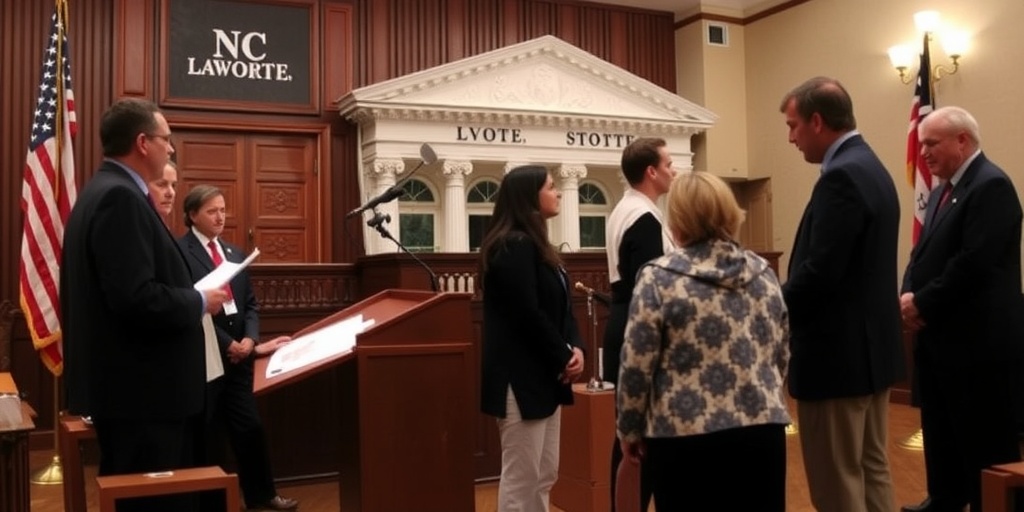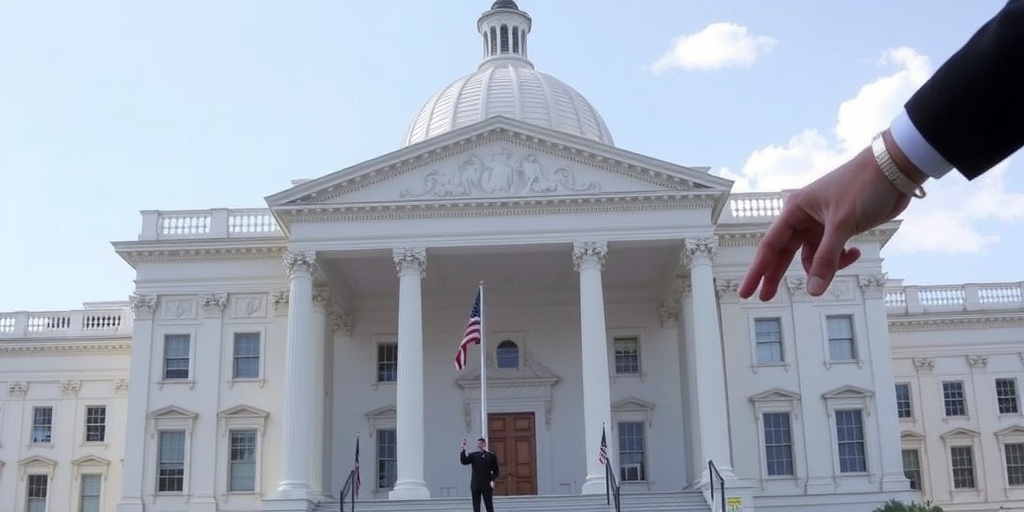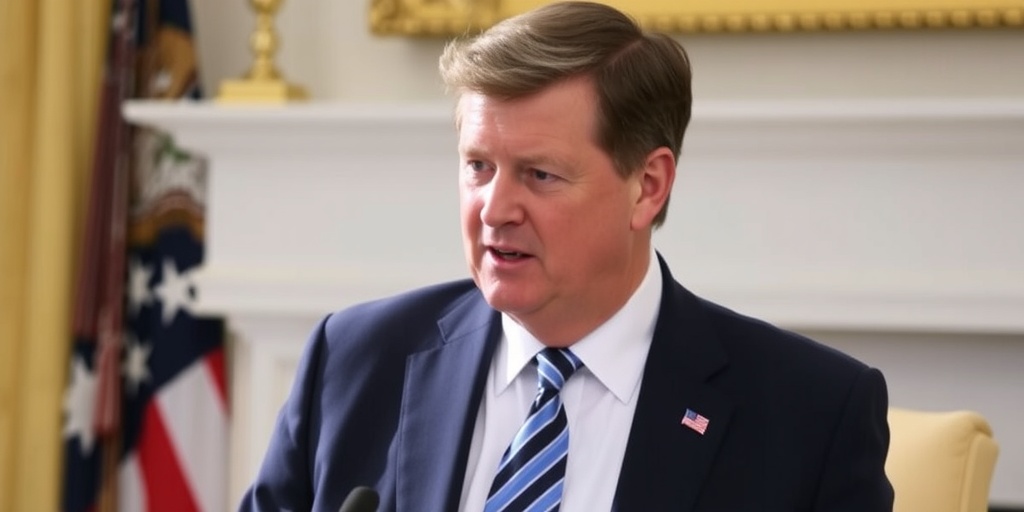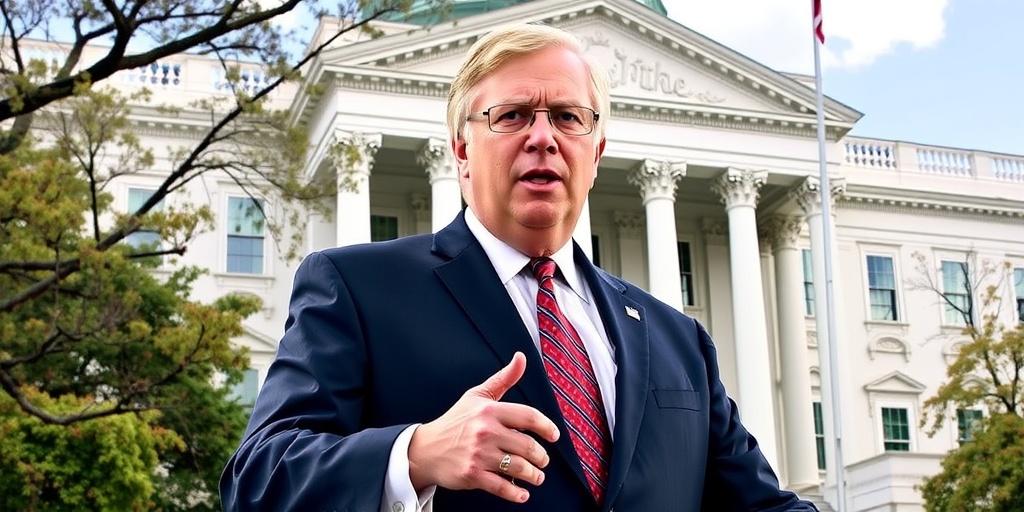Now Reading: N.C. Supreme Court Suspends Voter Eligibility Review in Judicial Race
-
01
N.C. Supreme Court Suspends Voter Eligibility Review in Judicial Race
N.C. Supreme Court Suspends Voter Eligibility Review in Judicial Race

North Carolina Supreme Court Stays Voter Verification Requirement Amid Ongoing Election Dispute
In a significant turn of events, the North Carolina Supreme Court has temporarily blocked the enforcement of a lower court’s ruling that would have mandated thousands of voters to verify their eligibility. The stay was granted just hours before the lower court’s decision was set to take effect, amid ongoing discussions surrounding an election that has drawn national attention due to its contentious nature.
The ruling comes amidst a protracted legal battle regarding a critical seat on the North Carolina Supreme Court. Justice Allison Riggs, the Democratic incumbent, narrowly secured her position over Republican challenger Judge Jefferson Griffin in November, winning by a slim margin of just 734 votes. This election, however, has since become the center of a heated dispute, particularly regarding the legitimacy of ballots cast by approximately 65,000 voters.
Judge Griffin has mounted a challenge against the election results, claiming that upwards of 65,000 votes should be considered invalid. His argument hinges on the assertion that many voters did not provide the necessary identification information during their registration process. However, the failure to supply this information has largely been attributed to administrative errors rather than any negligence on the part of the voters themselves. This case marks one of the last unresolved statewide elections in the United States for 2024, with its certification still pending.
Just days prior, on Friday, a state appeals court sided with Judge Griffin, ruling that the affected voters must either verify or correct their registration information within a designated 15-day period or risk having their ballots discarded. The impending enforcement of this ruling was set to take place at 5 p.m. on Monday and had the potential to influence the election outcome dramatically, especially given that many of the voters in question reside in predominantly Democratic counties.
Following the appeals court’s decision, Justice Riggs and the North Carolina State Election Board quickly announced plans to appeal the ruling. They requested that the State Supreme Court intervene to halt any registration verification efforts while reviewing the appellate court’s decision. In a surprising move, Judge Griffin’s legal team did not oppose this request for a stay, yet the Supreme Court chose to deliberate before taking any immediate action.
In their appeal, lawyers representing Justice Riggs argued that the court of appeals had failed to present any precedent to support such a drastic action so long after the election had concluded. They further contended that the ruling posed a risk of disenfranchising thousands of North Carolinians, infringing upon their rights to due process and equal protection under the law.
The implications of the lower court’s ruling sent shockwaves throughout North Carolina, creating confusion among voters and local election officials alike. As news of the potential ballot disenfranchisement spread, county and state election offices were inundated with inquiries from concerned voters eager to rectify any discrepancies with their registrations before time ran out.
In light of the situation, the North Carolina State Board of Elections stated that it would provide updated guidance to local officials regarding the registration verification process if deemed necessary. Patrick Gannon, a spokesperson for the State Board of Elections, indicated that if the appellate court’s ruling were to ultimately take effect, detailed instructions would be rolled out to assist both county boards of elections and the affected voters in complying with the court’s demands.
As this legal drama unfolds, the implications for North Carolina’s electoral landscape remain profound. Observers across the nation are watching closely, as the outcome could set a significant precedent for future election-related cases. The current developments highlight the fragile nature of voter rights and the tumultuous journey of election integrity in the face of legal challenges and administrative hurdles.
This story continues to develop, and residents of North Carolina, along with political analysts and voters nationwide, are urged to stay informed as new information emerges. Legal experts note that the decision will have lasting impacts not just on the immediate election but may also influence broader discussions on voter identification laws and election integrity across the country.
Stay Informed With the Latest & Most Important News
Previous Post
Next Post
-
 01New technology breakthrough has everyone talking right now
01New technology breakthrough has everyone talking right now -
 02Unbelievable life hack everyone needs to try today
02Unbelievable life hack everyone needs to try today -
 03Fascinating discovery found buried deep beneath the ocean
03Fascinating discovery found buried deep beneath the ocean -
 04Man invents genius device that solves everyday problems
04Man invents genius device that solves everyday problems -
 05Shocking discovery that changes what we know forever
05Shocking discovery that changes what we know forever -
 06Internet goes wild over celebrity’s unexpected fashion choice
06Internet goes wild over celebrity’s unexpected fashion choice -
 07Rare animal sighting stuns scientists and wildlife lovers
07Rare animal sighting stuns scientists and wildlife lovers





















